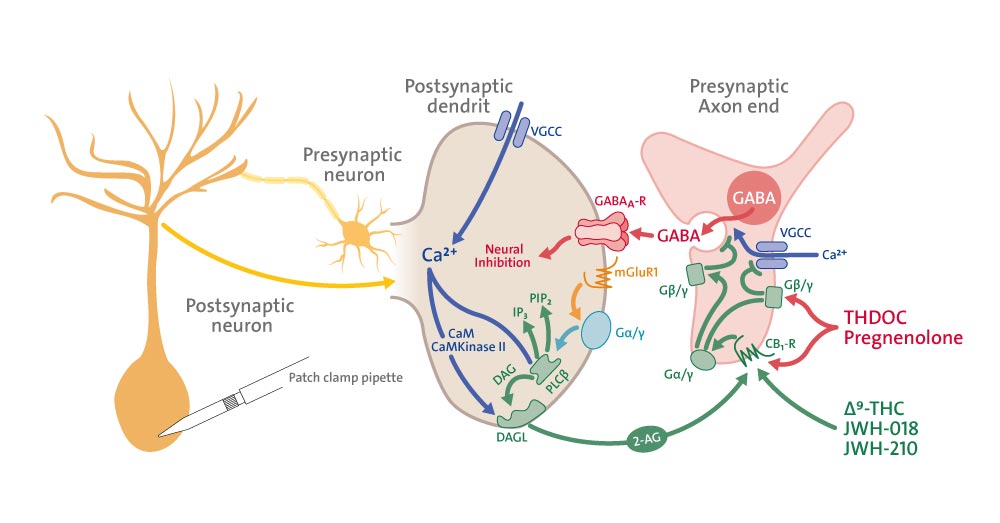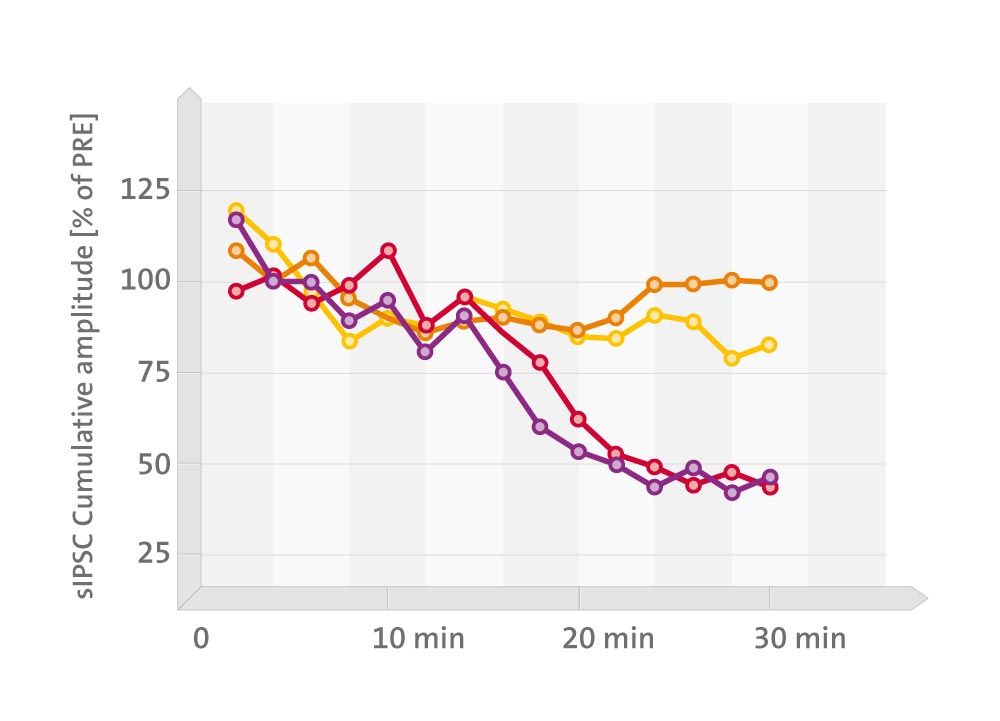The steroid hormone pregnenolone attenuates several in vivo behavioural and somatic effects of the phytocannabinoid Δ9-tetrahydrocannabinol, and it was suggested that pregnenolone can protect the brain from cannabis intoxication.
The primary neuronal cannabinoid action behind most of the behavioural and somatic effects of cannabinoids is presynaptic inhibition of synaptic transmission.
Therefore, the hypothesis of the present study was that pregnenolone attenuates the inhibition of synaptic transmission elicited by cannabinoids. Brain slices containing the cerebellum or the nucleus accumbens were prepared from brains of mice and rats. Spontaneous and electrically evoked GABAergic inhibitory postsynaptic currents (sIPSCs and eIPSCs) and evoked glutamatergic excitatory postsynaptic currents (eEPSCs) were recorded in superfused brain slices with patch-clamp electrophysiological techniques.
Pregnenolone (10-7M) did not affect the spontaneous GABAergic synaptic input (sIPSCs) to Purkinje cells in mouse cerebellar slices. The synthetic mixed CB1/CB2 receptor agonists JWH-210 (5×10-6M) and JWH-018 (5×10-6M) inhibited the spontaneous GABAergic synaptic input (sIPSCs) to Purkinje cells. This inhibition was not affected by pregnenolone (10-7M).
Tetrahydrodeoxycorticosterone (THDOC; 10-7M), an in vivo metabolite of pregnenolone, also did not affect the inhibition of the GABAergic synaptic transmission by JWH-018. The depolarization of the Purkinje cells induced suppression of the GABAergic input to Purkinje cells; pregnenolone (10-7M) did not affect this endocannabinoid-mediated form of synaptic suppression.
In rat nucleus accumbens slices, glutamatergic and GABAergic synaptic input to medium spiny neurons was activated by electrical stimulation of axons. Δ9-Tetrahydrocannabinol (2×10-5M), which is a partial agonist of both CB1 and CB2 receptors, suppressed the glutamatergic and GABAergic synaptic transmission in the rat nucleus accumbens. These suppressive effects of Δ9-tetrahydrocannabinol were not changed by pregnenolone (10-7M). The suppression of the GABAergic synaptic transmission by Δ9-tetrahydrocannabinol in the rat nucleus accumbens was also not affected by THDOC (10-7M).
The results indicate that pregnenolone, a neurosteroid, does not affect GABAergic synaptic transmission. The inhibition of GABAergic and glutamatergic synaptic transmission elicited by synthetic, endogenous and phyto-cannabinoids is also not changed by pregnenolone.
Therefore, it is unlikely that interference with cannabinoid-induced inhibition of synaptic transmission is the mechanism by which pregnenolone attenuates behavioural and somatic effects of Δ9-tetrahydrocannabinol in vivo.

